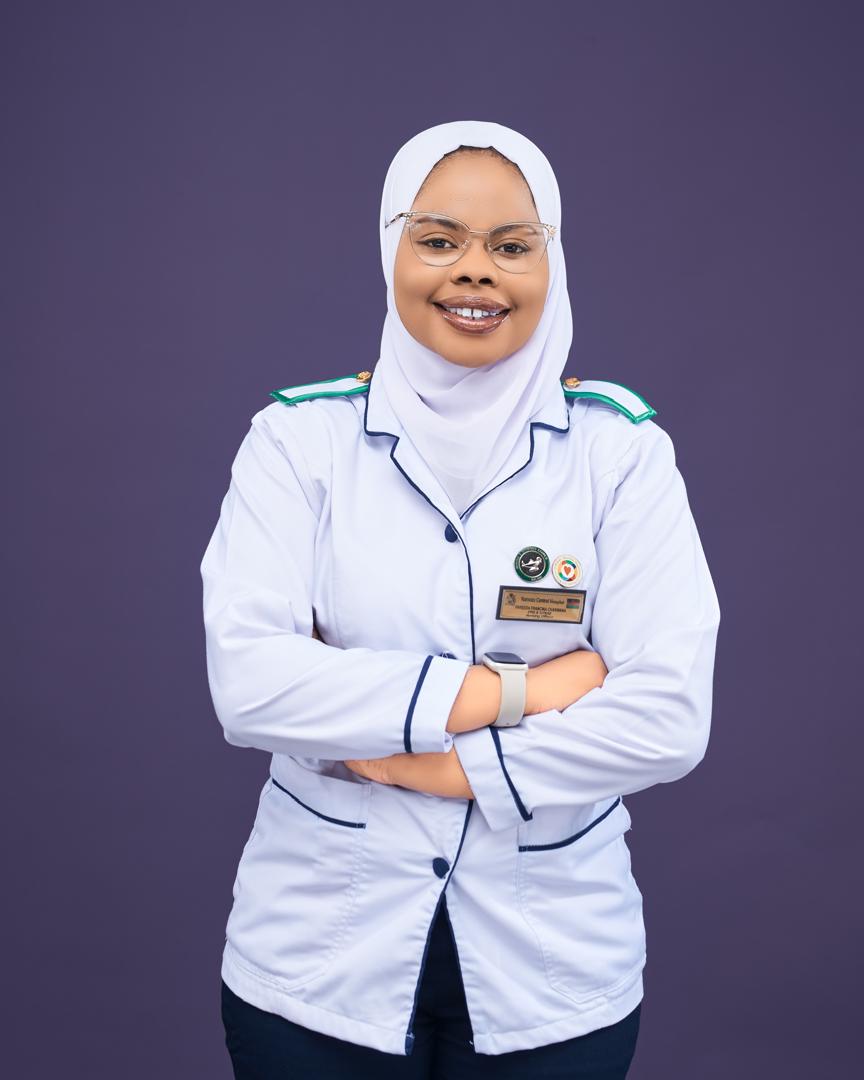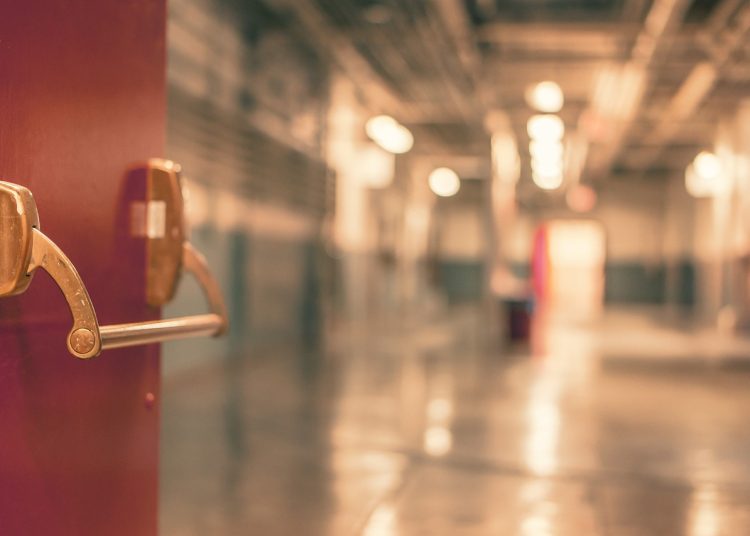“Balance is possible.” These three words have become something of a mantra for a Muslim nurse who, after years of allowing hospital demands to override religious practice, found renewed inspiration in our recent profile of Fareedah Chakwana.
“At first, I would ask myself how I could be assured that I still had tahara (ritual purity) to pray in my uniform after dealing with body fluids all day,” she explains, her voice reflecting years of inner conflict. “I would get discouraged and eventually stop trying. But Fareedah’s simple idea of bringing separate prayer attire and a mat gave me a solution I had never considered.”
This practical insight—that maintaining religious practice sometimes requires adaptation rather than abandonment—has proven transformative for this nurse, who requested anonymity for this follow-up piece.
𝗧𝗛𝗘 𝗦𝗧𝗥𝗨𝗚𝗚𝗟𝗘 𝗢𝗙 𝗣𝗥𝗔𝗬𝗘𝗥 𝗜𝗡 𝗣𝗥𝗔𝗖𝗧𝗜𝗖𝗘
For this nurse, the challenge of maintaining religious obligations in a demanding healthcare environment had long seemed insurmountable. Working in a busy environment, she faced the practical challenges that many Muslim healthcare workers encounter daily.
“Honestly, praying in the hospital is challenging because sometimes the space is small. You might find yourself the lone Muslim on a ward. You might want to pray in the nurses’ station, but a colleague comes to pick up something urgent and disturbs you. Prayer times can coincide with emergencies when you simply can’t leave.”
These obstacles gradually eroded her practice. “I was discouraged. The concern about tahara after dealing with fluids, the lack of private space, and the interruptions—they all accumulated until I stopped trying altogether.”
It was reading about Fareedah’s systematic approach—keeping separate prayer clothes, identifying quiet spaces, and maintaining disciplined timing—that opened her eyes to possibilities she hadn’t considered.
“The conducive environment was there,” she admits, now with clarity. “Our Nurses and Midwives Council already allows us to dress Islamically as long as it matches prescribed uniforms. They’ve approved special dressing options that conform with our religion. The government and the council already provide supportive policies—it’s just for us to see how we can balance the two.”
This recognition that external barriers were perhaps less significant than internal ones reflects a profound mindset shift. “I was lacking motivation, which Fareedah has given me.”
𝗔 𝗟𝗘𝗦𝗦𝗢𝗡 𝗙𝗥𝗢𝗠 𝗙𝗜𝗩𝗘 𝗬𝗘𝗔𝗥𝗦 𝗣𝗔𝗦𝗧
As she contemplates returning to regular prayer, this nurse draws strength from an unexpected source—a patient encounter that has stayed with her for five years. The irony isn’t lost on her: while she had neglected formal prayer while on duty, she had never abandoned the compassionate care that Islam demands.
“Just like other nurses, I give my whole self to assist patients,” she reflects. “Many have blessed me with their words for the care I provide. I’ve been on track with what my faith and profession require in terms of service—I just wasn’t seeking Allah’s blessings or thanking Him when designated prayer times came while on duty.”
Early in her career at a rural posting, she assisted a woman with delivery complications after an attempted home birth. Rather than scolding, she chose compassionate care.
“Here was a person who needed help—whether I treated her well or poorly, she wouldn’t have protested because she was vulnerable. She needed me. But that behavior would be planted in her head forever.”
Five years later, after being reposted to the same center, she encountered the woman again.
“Imagine meeting this woman five years later. She told me, ‘You are the very kind person who helped us. May God continue to bless you’.”
This encounter highlighted a profound realization: while patients were blessing her for compassionate care, she had neglected to seek Allah’s blessings through prayer while on duty—the very practice that could strengthen and sustain such service.

𝗪𝗛𝗘𝗥𝗘 𝗙𝗔𝗜𝗧𝗛 𝗔𝗡𝗗 𝗘𝗧𝗛𝗜𝗖𝗦 𝗔𝗟𝗜𝗚𝗡
The integration between religious values and nursing principles became clearer as she reflected on Fareedah’s example and her own experiences.
“Islam encourages us to speak well to everyone, to control anger by saying ‘audhu billah min shaitan rajim’ (I seek refuge in Allah from Satan), and to treat everyone with kindness,” she explains. “Meanwhile, our nursing ethics encourage the same—treating everyone equally regardless of background, color, or social or financial status. You have to put yourself in their shoes.”
This recognition that Islamic principles and professional ethics “talk to each other” rather than conflict has been professionally liberating.
“For us as Muslims, the hijab actually creates accountability because everyone can identify us easily,” she notes. “For example, I might be the only person wearing hijab in a ward. Some might sneak out without being noticed, but I couldn’t do that because everyone would immediately see that ‘the hijab nurse’ had left.”
𝗔 𝗥𝗘𝗧𝗨𝗥𝗡 𝗧𝗢 𝗕𝗔𝗟𝗔𝗡𝗖𝗘
With renewed perspective, this nurse now approaches the challenge of prayer with both pragmatism and faith. “The beauty of Islam is that you can replace prayers you’ve missed because of emergencies. There’s always accommodation—we just need discipline.”
Her advice for colleagues reflects her newfound clarity: “Let’s balance our time. Whether it’s one hour or 30 minutes, let’s utilize it well. Make prayer a habit, and we’ll get used to it. We should not allow faith to suffer because of work, nor allow work to suffer because of faith. Let’s find balance, as it has been proven possible.”
𝗠𝗢𝗩𝗜𝗡𝗚 𝗙𝗢𝗥𝗪𝗔𝗥𝗗 𝗪𝗜𝗧𝗛 𝗖𝗢𝗡𝗙𝗜𝗗𝗘𝗡𝗖𝗘
Perhaps most significantly, this nurse has begun to see how her integrated Muslim identity can serve as a powerful testimony in professional spaces.
“If someone has heard negative things about Islam, how you treat them either confirms those beliefs or offers another perspective,” she reflects. “Your behavior as a Muslim nurse can provide small Muslim girls with inspiration to be like you.”
As she prepares to bring her prayer mat to work for the first time in years, this nurse carries renewed purpose.
“I have already packed my prayer mat and burqa — preparing for my next shift,” she says with quiet determination. “We just need to be disciplined. From Fareedah’s example, we know it’s possible.”
—
𝘛𝘩𝘪𝘴 𝘪𝘴 𝘵𝘩𝘦 𝘴𝘦𝘤𝘰𝘯𝘥 𝘢𝘳𝘵𝘪𝘤𝘭𝘦 𝘪𝘯 𝘰𝘶𝘳 𝘰𝘯𝘨𝘰𝘪𝘯𝘨 “𝘍𝘢𝘪𝘵𝘩 𝘪𝘯 𝘗𝘳𝘢𝘤𝘵𝘪𝘤𝘦” 𝘴𝘦𝘳𝘪𝘦𝘴 𝘦𝘹𝘱𝘭𝘰𝘳𝘪𝘯𝘨 𝘩𝘰𝘸 𝘔𝘶𝘴𝘭𝘪𝘮 𝘱𝘳𝘰𝘧𝘦𝘴𝘴𝘪𝘰𝘯𝘢𝘭𝘴 𝘪𝘯𝘵𝘦𝘨𝘳𝘢𝘵𝘦 𝘴𝘱𝘪𝘳𝘪𝘵𝘶𝘢𝘭 𝘢𝘯𝘥 𝘱𝘳𝘰𝘧𝘦𝘴𝘴𝘪𝘰𝘯𝘢𝘭 𝘪𝘥𝘦𝘯𝘵𝘪𝘵𝘪𝘦𝘴.




















